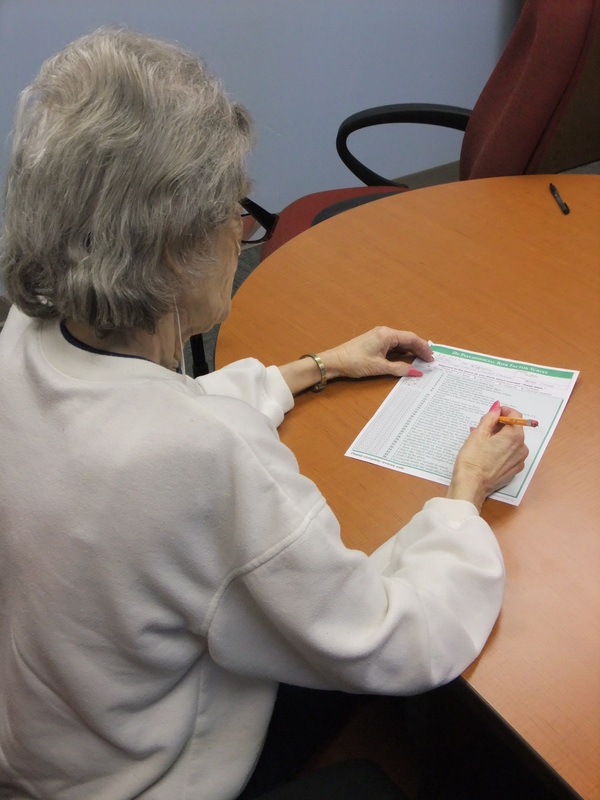Scientific Data for the Psychosocial Risk Factors

The psychosocial risk factors of Depression, Anxiety, Anger/Hostility and Social Isolation have been studied for decades. Below is a sampling of the research:
General
General
- Rosengren A, Hawken S, Ôunpuu S, et al. Association of psychosocial risk factors with risk of acute myocardial infarction in 11,119 cases and 13,648 controls from 52 countries (the INTERHEART study): case-control study. Lancet. 2004;364:953-62.
- INTERHEART study. International study suggests the“presence of of psychosocial stressors is associated with increased risk of acute myocardial infarction, suggesting that approaches aimed at modifying these factors should be developed.
- http://linkinghub.elsevier.com/retrieve/pii/S0140673604170190
- Krantz DS, McCeney MK. Effects of psychological and social factors on organic disease: a critical assessment of research on coronary heart disease. Annu Rev Psychol. 2002;53:341-69.
- Literature review of five key psychosocial risk factors. “Taken as a whole, evidence for a psychological and social impact on CAD morbidity and mortality is convincing.”
- http://www.ncbi.nlm.nih.gov/pubmed/11752489
|
Depression
Wang HX, Mittleman MA, Leineweber C, Orth-Gomer K. Depressive symptoms, social isolation, and progression of coronary artery atherosclerosis: the Stockholm Female Coronary Angiography Study. Psychother Psychosom. 2006;75(2):96-102.
|
- Lett HS, Blumenthal JA, Babyak MA, et al. Depression as a risk factor for coronary artery disease: evidence, mechanisms, and treatment. Psychosom Med. 2004 May-Jun;66(3):305-15.
- Literature review. Depression confers a relative risk between 1.5 and 2.0 for the onset of CAD in healthy individuals, whereas depression in patients with existing CAD confers a relative risk between 1.5 and 2.5 for cardiac morbidity and mortality.
- http://www.ncbi.nlm.nih.gov/pmc/articles/PMC1768812/
- “It is concluded that depression predicts the development of CHD in initially healthy people. The stronger effect size for clinical depression compared to depressive mood points out that there might be a dose-response relationship between depression and CHD. Implications of the findings for a broader bio-psycho-social framework are discussed.”
- Pratt LA, Ford DE, Crum RM, Armenian HK, Gallo JJ, Eaton WW. Depression, psychotropic medication, and risk of myocardial infarction: Prospective data from the Baltimore ECA follow-up. Circulation. 1996 Dec 15;94(12):3123-9.
- “Compared with respondents with no history of dysphoria, the odds ratio for MI associated with a history of dysphoria was 2.07 (95% CI, 1.16 to 3.71), and the odds ratio associated with a history of major depressive episode was 4.54 (95% CI, 1.65 to 12.44), independent of coronary risk factors.”
- http://www.ncbi.nlm.nih.gov/pubmed/8989119
- Bush DE, Ziegelstein RC, Tayback M, et al. Even minimal symptoms of depression increase mortality risk after acute myocardial infarction. Am J Cardiol. 2001;5:337-341.
- Discovered a dose-response relationship of depression and post-MI mortality even at lower levels of depression.
- http://www.medscape.com/viewarticle/432992
- Strik JJ, Honig A, Lousberg R, van Os J, van den Berg EJ, van Praag HM. Clinical correlates of depression following myocardial infarction. Int J Psychiatry Med. 2001;31(3):255-64.
- There are a number of clinical correlates of post-MI depression.
- http://www.ncbi.nlm.nih.gov/pubmed/11841123
- Futterman LG, Lemberg L. Anger and acute coronary events. Am J Crit Care. 2002 Nov;11(6):574-6.
- It is helpful to rule out “true” unstable angina due to progressive coronary disease from recurrent angina tha results from emotional distress and anger.
- http://www.ncbi.nlm.nih.gov/pubmed/12425409
- Smith TW, Uchino BN, Berg CA, et al. Hostile personality traits and coronary artery calcification in middle-aged and older married couples: different effects for self-reports versus spouse ratings. Psychosom Med. 2007;69:441-448.
- Hostility in younger persons is associated with coronary artery calcification (predictor of CAD), but this can be underestimated when assessed only by self-report. Rating by others in the persons.
- http://www.ncbi.nlm.nih.gov/pubmed/17585063
- Iribarren C, Sidney S, Bild DE, et al. Association of hostility with coronary artery calcification in young adults; the CARDIA study. Coronary Artery Risk Development in Young Adults. JAMA. 2000 May 17;283(19):2546-51.
- Young adults’ hostility scores predicted increased coronary calcification at 10 year follow-up.
- http://www.annals.org/content/144/11/822.full.pdf+html
- Player MS, King DE, Mainous AG 3rd, Geesey ME. Psychosocial factors and progression from prehypertension to hypertension or coronary heart disease. Ann Fam Med. 2007 Sep-Oct;5(5):403-11.
- “High levels of trait anger in middle-aged prehypertensive men were associated with increased risk of progressing to hypertension and incident CHD.”
- Angerer P, Siebert U, Kothny W, Mühlbauer D, Mudra H, von Schacky C. Impact of social support, cynical hostility and anger expression on progression of coronary atherosclerosis. J Am Coll Cardiol. 2000 Nov 15;36(6):1781-8.
- Krantz DS, Olson MB, Francis JL, et al. Anger, hostility, and cardiac symptoms in women with suspected coronary artery disease: the Women's Ischemia Syndrome Evaluation (WISE) Study. J Womens Health. 2006 Dec;15(10):1214-23.
- Among women with suspected CAD, anger-out scores were associated with the presence of angiographic CAD.
- Brydon L, Magid K, Steptoe A. Platelets, coronary heart disease, and stress. Brain Behav Immun. 2006 Mar;20(2):113-9.
- Includes discussion of platelet aggregation in relationship to high levels of hostility and depression.
- Shimbo D, Chaplin W, Akinola O, et al. Effect of anger provocation on endothelium-dependent and -independent vasodilation. Am J Cardiol. 2007 Mar 15;99(6):860-3.
- Zhang J, Niaura R, Dyer JR, et al. Hostility and urine norepinephrine interact to predict insulin resistance: the VA Normative Aging Study. Psychosom Med. 2006 Sep-Oct;68(5):718-26.
- Individuals with high stress and high hostility were more likely to have insulin resistance.
- Davidson KW, Gidron Y, Mostofsky E, Trudeau KJ. Hospitalization cost offset of a hostility intervention for coronary heart disease patients. J Consult Clin Psychol. 2007 Aug;75(4):657-62.
- Post-MI patients were randomized into hostility management treatment. There was a $2 savings in future hospitalization costs for each $1 spent on this treatment.
- Shen BJ, Avivi YE, Todaro JF, et al. Anxiety characteristics independently and prospectively predict myocardial infarction in men the unique contribution of anxiety among psychologic factors. J Am Coll Cardiol. 2008 Jan 15;51(2):113-9.
o
- Eaker ED, Sullivan LM, Kelly-Hayes M, D'Agostino RB Sr, Benjamin EJ. Tension and anxiety and the prediction of the 10-year incidence of coronary heart disease, atrial fibrillation, and total mortality: the Framingham Offspring Study. Psychosom Med. 2005 Sep-Oct;67(5):692-6.
- “Tension was observed to be an independent risk factor for incident CHD, AF (Atrial Fibrillation), and mortality in men. Anxiety was a risk factor for total mortality in men and women.”
- Frasure-Smith N, Lespérance F. Depression and anxiety as predictors of 2-year cardiac events in patients with stable coronary artery disease. Arch Gen Psychiatry. 2008 Jan;65(1):62-71.
- “Anxiety and depression predict greater MACE (major adverse cardiac event) risk in patients with stable CAD…”
- Shibeshi WA, Young-Xu Y, Blatt CM. Anxiety worsens prognosis in patients with coronary artery disease. J Am Coll Cardiol. 2007 May 22;49(20):2021-7.
- “A high level of anxiety maintained after CAD diagnosis constitutes a strong risk of MI or death among patients with CAD.”
- Smoller JW, Pollack MH, Wassertheil-Smoller S, et al. Panic attacks and risk of incident cardiovascular events among postmenopausal women in the Women's Health Initiative Observational Study. Arch Gen Psychiatry. 2007 Oct;64(10):1153-60.
Social Isolation
- Seeman TE, Syme SL. Social networks and coronary artery disease: a comparison of the structure and function of social relations as predictors of disease. Psychosom Med. 1987 Jul-Aug;49(4):341-54.
- “(Social) network instrumental support and feelings of being loved are more important in predicting coronary atherosclerosis than is (social) network size…”
- Wang HX, Mittleman MA, Orth-Gomer K. Influence of social support on progression of coronary artery disease in women. Soc Sci Med. 2005 Feb;60(3):599-607.
- “In women with coronary disease, depressive symptoms and social isolation in combination accelerated disease progression, suggesting a direct psychosocial effect on the atherosclerotic process.”
- Holt-Lunstad J, Birmingham W, Jones BQ. Is there something unique about marriage? The relative impact of marital status, relationship quality, and network social support on ambulatory blood pressure and mental health. Ann Behav Med. 2008 Apr;35(2):239-44.
- “Findings indicate being married per se is not universally beneficial, rather, the satisfaction and support associated with such a relationship is important. However, marriage may be distinctive, as evidence further suggests that support from one's network does not compensate for the effect of being single.”
- Kop WJ, Berman DS, Gransar H, et al. Social network and coronary artery calcification in asymptomatic individuals. Psychosom Med. 2005 May-Jun;67(3):343-52.
- “Social network indices such as being single or widowed are associated with CAC, independent of age and coronary risk factors.
- Friedmann E, Thomas SA, Liu F, et al. Relationship of depression, anxiety, and social isolation to chronic heart failure outpatient mortality. Am Heart J. 2006 Nov;152(5):940-48.
- Brummett BH, Barefoot JC, Siegler IC, et al. Characteristics of socially isolated patients with coronary artery disease who are at elevated risk for mortality. Psychosom Med. 2001 Mar-Apr;63(2):267-72.
- “Patients with small social networks had an elevated risk of mortality, but this greater risk was not attributable to confounding with disease severity, demographics, or psychological distress.”
